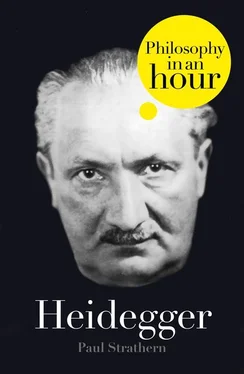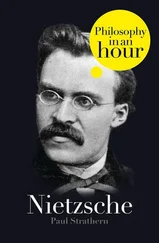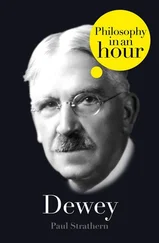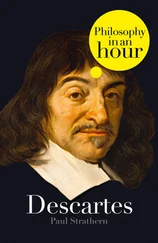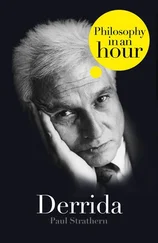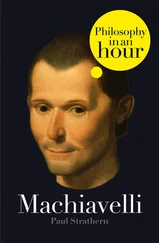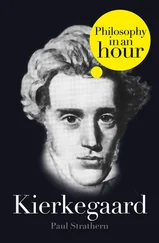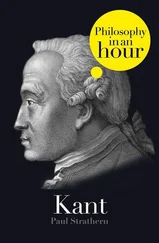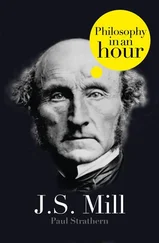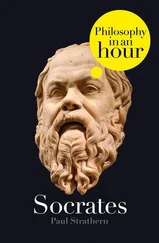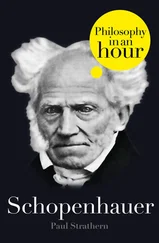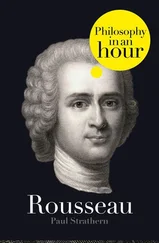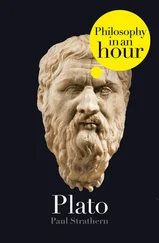If psychologism was correct, this would mean that 2+2=4 would not be incontrovertible. It would simply arise from one’s personal intuition of the world. Others might intuit it differently – and we would have no grounds for refuting them.
Husserl used the example of geometry, which he considered the most absolute and incontrovertible of all mathematical knowledge. The entire edifice of geometry was built upon a foundation that consisted of such basic concepts as ‘line’, ‘distance’, ‘point’, and so forth. According to Husserl, there was certainly an actual day in prehistoric time when particular individuals must have had intuitions of these concepts. In the midst of the flow of his experience, a particular primitive human being suddenly intuited the idea of a ‘point’. Later, another understood the concept of ‘line’. But once understood, these concepts had a precise and undeniable meaning. The rest of geometry consisted simply of exploring the logical implications that arose from these basic concepts. For instance, if we have one line, it is possible to have two lines, or even three. If these three lines are joined so as to enclose a space, they will form a figure with three angles: a triangle. This is necessarily true, and could not be otherwise . It had always been true, and always would be. Geometry did not contain these truths, they were ‘already there’, simply waiting to be discovered. This was the same with all mathematics, all logic, all absolute knowledge. They somehow existed beyond reality, beyond the inexactitudes and uncertainties of everyday life. They existed in a realm of their own. There was a ‘presence’ where absolute truth existed – the only alternative would have been an ‘absence’. Such a ‘presence’ guaranteed all absolute truth by its very existence.
Husserl’s ‘presence’ bears a strong resemblance to an unseen all-seeing God, whose existence guarantees all truth. Indeed, at the outset of his career Husserl had stated that his aim was ‘to find the way to God and to a truthful life through strict philosophical scholarship’.
But to find this way by philosophical means it was necessary to study the one subject whose truth was closest to us – namely ourselves, humanity itself. Here too there was a similar division between the uncertainties of reality and absolute truth. In Husserl’s view, the essential study of humanity, the true subject of philosophy, lay far beyond the reach of science or psychology. His phenomenology proposed a ‘philosophy of Absolute Being’ which arose in a ‘universally true’ consciousness. Here was where philosophy originated, beyond even the need for any fundamental presuppositions, such as were required by logic. Here was the ultimate philosophy, which existed of its own accord. But how was it possible to reach this ‘pure’ and ‘universally true’ consciousness? Evidently this was not possible by means of scientific or even logical methods. It could only be achieved by using a phenomenological approach that Husserl called ‘reduction’.
Reduction involved concentrating upon consciousness and eliminating any attention to particulars by ‘bracketing them out’. In this way one would be left with pure consciousness, with the ‘essential, universal structure of the mind’. First, one ‘bracketed out’ reality. As Husserl pointed out, reality consists of real objects, but these objects are not objects in consciousness itself. They exist outside consciousness in the real world – where they are best studied by scientific means. Second, it was necessary to ‘bracket out’ the objects and acts of consciousness itself. As we have seen, these objects were not the objects of reality itself, they were representations of this reality. They appeared in our consciousness through acts of consciousness, such as memory and perception. Similar acts of consciousness included judging, analysing, contemplating, and so forth. These too could be ‘bracketed out’. We are then left with consciousness itself – ‘pure’ consciousness – the unifying realm where all our awareness takes place. At this point we experience the ‘origin-immune’ truth of our ‘primal givenness’ (in the sense that awareness is given to us). In this way we are aware of a ‘transcendental ego’ which is ‘universally true’ and is thus part of an ‘Absolute Being’.
Heidegger initially accepted Husserl’s analysis but soon began to modify it with ideas of his own. This would be the beginning of his original philosophy – nonetheless it would remain heavily indebted to Husserl’s phenomenological approach.
In 1918 Heidegger was called up and dispatched to a meteorological unit outside Sedan in German-occupied eastern France. By now the German army was beginning to disintegrate as the Allies advanced. Heidegger took part in no actual fighting but was deeply affected by the historical events unfolding around him. In rapid succession the kaiser abdicated and fled to Holland, Germany became a republic under a Social Democratic government, and the German army surrendered. A humiliated Germany was faced with political chaos: the navy mutinied in the northern ports while Berlin and Munich were in tumult. Heidegger recognised that the entire pre-war way of life – its culture and its bourgeois self-belief – was gone forever. Echoing his belief in phenomenology, he felt nothing was left to him but the ‘force of personality or belief in the intrinsic value of belonging to the central ego’. Yet paradoxically he could not help but feel ‘a pleasure to be alive’, happy that a world that had ‘merely played with the spirit’ was now coming to an end. The future held the promise of a ‘new era of spirit’. Others throughout Germany, imbued with similar spirit, had a different take on affairs. In imitation of Lenin’s Bolsheviks in Russia, the south German state of Bavaria declared itself an independent Communist republic. The Spartacists led a revolt in Berlin with the aim of establishing a similar ‘red republic’. Both were soon crushed by the right-wing ‘Freikorps’ (free soldiers), and the Red Terror was followed by a White Terror. Meanwhile the Allied blockade continued, and many began to go hungry.
Конец ознакомительного фрагмента.
Текст предоставлен ООО «ЛитРес».
Прочитайте эту книгу целиком, купив полную легальную версию на ЛитРес.
Безопасно оплатить книгу можно банковской картой Visa, MasterCard, Maestro, со счета мобильного телефона, с платежного терминала, в салоне МТС или Связной, через PayPal, WebMoney, Яндекс.Деньги, QIWI Кошелек, бонусными картами или другим удобным Вам способом.
